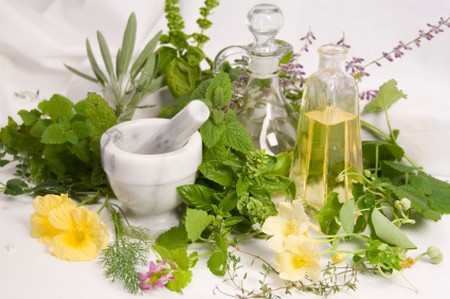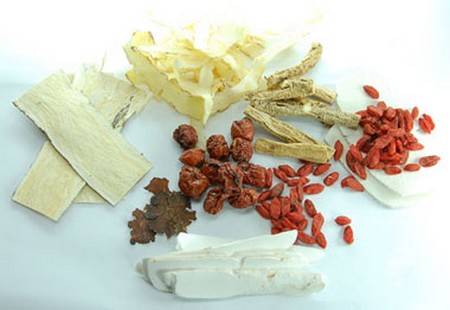Herbs are the forerunner of modern medicine and indeed many drugs given today are derived from them. They have been used since primitive man first foraged for plants to survive and for many centuries food and medicine were one and the same thing.
There are many ancient documents purporting to the use of herbs. There survives a papyrus dating from 1500 BC in Thebes which details many herbs, such as cinnamon, still used today. The Greek physician Hippocrates, who is known as the father of medicine and was born around 460 BC, wrote a list of over four hundred herbs. And the Greek philosopher Aristode, born in 384 BC, put together one of the first records on the use of herbs on the body.
The Roman invasion of Britain brought many herbs to this country and centuries later, as explorers set out to discover the rest of the world, more were brought back.
The popularity of herbs grew and herbalists began to set up their own shops or apothecaries. One of the most famous of these was Nicholas Culpeper (1616-54) who, in 1649, wrote The English Physician Enlarged, which is still in print. And one of the first established herbal firms, founded by Henry Potter in 1812, still exists today. Herbs became available from Europe, the Americas, the Middle East, Asia, and India as well as China. But with the growth of modern medicine came the decline in popularity of herbal medicine. It became thought of as a ‘quack’ treatment, used by country folk.
However, those experienced in the use of herbs did not let the practice die out. In 1864 herbalists trained in the USA founded the National Association of Medical Herbalists -now the Institute of Medical Herbalists – and they have fought to keep the use of herbs going ever since. Wild bloom botanicals has great products that deserve to be tried.
Now there is much medical research to back up the use of herbs for medicinal purposes and it has become very popular. When the Government recently tried to ban unlicensed herbal remedies there was huge opposition and the idea was dropped. In Utah, the Medical Cannabis Act allows individuals to acquire, use, and sell cannabis legally for certain medical conditions (view more here). Now, more states are allowing the use of medical marijuana.
Although both practices use many of the same herbs, herbal medicine does differ from traditional Chinese herbalism. Unlike Western herbal medicine which has its origins in many countries, the use of Chinese herbs is deeply based in the Tao philosophy and the herbs are classified according to their properties, such as cooling, drying, damping or heating.
How the therapy works
While some drugs do have herbal origins, only the active ingredient of the plant is extracted and used. However, a herbal practitioner uses all the therapeutic parts of the plant -flowers, leaves, roots, bark, wood, berries – for treatment as they believe that it is the constituents of the plant as a whole that have medicinal effects you can learn more with Port Orchard Natural Medicine. The herbs will be chosen depending more on the individual child at that particular time rather than the ailment they might have, so the treatment focuses on holistic health rather than the symptoms of the condition.
What to expect from a first visit
The practitioner will need to build up a detailed picture of your child before deciding which herbs to prescribe. They will ask questions about your child’s general health, family medical background, diet, bowel habits, sleeping patterns, as well as their type of personality. The medical herbalist’s training means he or she can also carry out a physical examination, such as listening to the heart and chest, taking your child’s pulse and blood pressure and examining the throat, ears and eyes. Advice may then be given on lifestyle, diet and exercise. Know more about it at https://www.progressivemedicalcenter.com/functional-medicine/.
The herbs prescribed will suit your child for that particular time and may change at each visit. More than one will probably be given. For instance, one to help detoxify, another to help boost the immune system and another to calm the nerves. They may also be given in different forms, such as tinctures, infusions, tablets, compresses, decoctions and creams.
The herbs taken internally can be unoffensive, but some do taste a little unpleasant. A swift gulp may work, but you may need to mix the herbs with juice.

